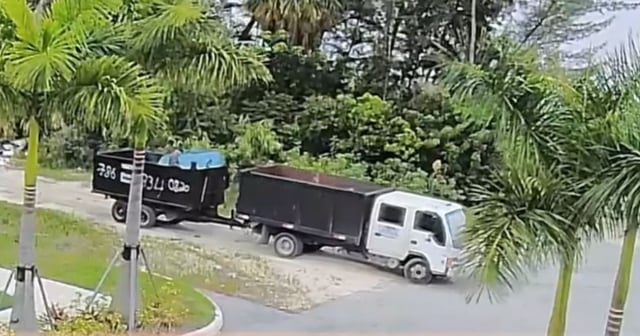The Cuban regime has come out to defend its Migration, Foreigner, and Citizenship laws projects, recently published on the website of the National Assembly of People's Power, with the aim of "promoting citizen participation and contributing to the legal culture" of Cubans.
During a conference at the International Press Center attached to the Ministry of Foreign Affairs, spokespersons from the Ministry of Interior (MININT), the institution in charge of drafting the documents, stated that the projects aim to "continue uniting Cubans."
"We have not made a law to subtract, these are not projects to subtract, they are projects to ask for unity among Cubans," said Colonel Mario Méndez Mayedo, head of the Directorate of Identification, Immigration, and Foreigners (DIIE) of the MININT.
The official, the same one who claimed less than a year ago that Cuban emigrants upon returning to the island respond with the phrase "Country or Death," mentioned that the Cuban government will establish "gradual facilities so that this emigrant can obtain residency abroad and have the possibility of living in Cuba or not."
During this press conference, the Cuban authorities specified that the new laws that will be presented to Parliament next July will affect 1.3 million Cubans residing abroad.
The most notable change in the Migration legislation would allow all Cubans who have been living abroad for more than two years to retain their citizenship rights and properties on the island, something that up to now depended on renewing their resident status abroad every two years.
It also exposes a series of requirements that the government demands for entry and exit from the country, in which the discretion in which the Cuban authorities assume the interpretation of the points raised in the document plays an important role.
An important point is that the law is not retroactive, so it only affects those individuals who emigrate once the new law comes into effect, clarified the head of DIIE, who also pointed out that after its approval by the ANPP, it will come into force in 2025.
The Citizenship bill, on the other hand, sets out a series of tenets such as effective citizenship, equality of rights, addressing the acquisition, renunciation, loss, and recovery of citizenship, as well as the registration of it.
However, a concerning aspect is the powers it gives the President of the Republic to deprive a Cuban of their citizenship.
Chapter III "Deprivation of Cuban Citizenship" states in its Article 54 that Cubans cannot be deprived of their citizenship, except for reasons established by law.
Subsequently, article 55.1 establishes two causes: one is to enlist in any type of armed organization with the aim of attacking the territorial integrity of the Cuban State, its citizens, and other persons residing in the country.
The second cause is "to carry out acts abroad contrary to the high political, economic, and social interests of Cuba, whenever it is considered as such by the relevant authority of citizenship", a broad approach that could include any activity that the regime considers a threat, such as opponents or political activists.
Currently, the migration issue has become an important point in Cuba's daily life. The demands for a change in regime, the government's mismanagement of the economy, human rights violations, are aspects that the Cuban diaspora positions in their interventions and projections on the country.
Each of these laws has sparked debate within the Cuban community, especially among those residing abroad, due to the impact they have on their contact with the island. Diverse, conflicting, and aligned opinions are reflected both on social media and on websites that allow the exchange of ideas.
What do you think?
COMMENTFiled under:
